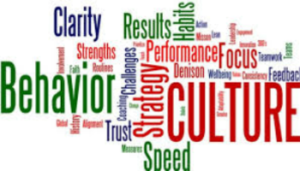Call Center Culture- 8 Critical Steps for Transforming Your Call Center

You learn some things after running contact centers for 20+ years on building call center culture. The following are 5 tips or to take that a step further, absolutes on changing or creating a great contact center culture in your customer service center.
“You can’t expect your employees to exceed the expectations of your customers if you don’t exceed the employee’s expectations of management.” -Howard Shultz CEO Starbucks
1. Your Contact Center Environment Needs to be AWESOME and FUN:
Customer Service/sales positions can be very difficult jobs. I truly believe that associates feed off the energy in the room. Jon Gordon’s book “The Positive Dog” talks about how each of us has two dogs inside of us constantly fighting. One is positive, motivated, and always in a great mood. The other dog is negative, tired, and does the least amount of work possible. The dog that wins is the dog WE FEED!!! I believe that call center management must provide the proper “nutrition” for the positive dog.
I don’t care what type of call center you have there should be energy, it should be loud, there should be high fives and games going on. Contact centers are unique places and can be actually the “fun” place to work when done properly. Attitude is everything…what kind of message are associates getting when they come to work.
When I come into the room at the beginning of the shift I love hearing an associate ask, “What game is going on today!”…That is the sound of people wanting to be at work
2. Hire Based on Culture NOT Experience Only:
Does your organization really know what type of a person it wants? What are you really looking for when hiring customer service associates. Anyone can look at a resume, see experience in the same job and hire. Just basing your hiring on that is a HUGE mistake especially in a call center environment where there are close quarters and the job can be very difficult at times. It is more important to have the RIGHT person that fits your company than the so-called BEST person. I know that sounds crazy but we have found it to absolutely be true
Can you describe the culture of your organization and the types of employees that meet that standard in a couple of words? Most cannot and until a couple of years ago neither could we. If you cannot plainly explain your culture in hiring you are spinning your wheels and I would bet have higher turnover and a work environment that I am sure can be improved.
3. Control the First 30 Minutes:
Management needs to control the first thirty minutes of the shift and then slowly back down as the hour goes on. Positive management is key here. EVERY ASSOCIATE NEED TO BE GREETED as they come in. Your associates are your most important asset. The email you are sending can wait.
During this time you are taking the temperature of the team, who needs extra motivation, who is in a great mood. Learn the personalities and what makes your team tick.
The first thirty minutes should be a time to recap yesterday, give team goals, and then give each team member their individual goals for the day that are reasonable for each specific person. Setting the table for the day is HUGE. If you work hard to get things started off properly things will more easily fall into place.
Check out our blog post on how to do this here: Controlling the First 30 Minutes of Your Call Center Day!
4. Invest in Your Associates:
How we correct associates goes a long way to how problems get solved. Many centers are “write-up” happy. They use negative reinforcement as the means to correct problems. When negativity is used you are feeding into the negative dog! My advice to you is to go OVER THE TOP when someone does something good. Great sale, awesome quality scores, good monitoring session or the best….having a customer say what a great job they did (we do really special things for this) all get balloons, shout outs high fives…
When someone does something wrong then you need to invest in them. Help them, train them, and let them listen to their calls. Don’t be write-up happy (time and place for this) and don’t embarrass them on the floor. Associates will be able to see you are helping them and a bond will develop.
It’s easy to fire people. Anyone can do that. True leaders make stars.
5. Allow for Progression:
People like to succeed. While not everyone can become management there are many ways to progress associates. They can move to higher-paying programs, become team leaders, or simply sit in the “better” chair or workstation.
Every week each supervisor should take 15 minutes and pull each associate for “weekly agent analysis” meetings. Talk to the associate in a positive tone about how they are doing, their goals, and goal setting and set up a progression plan for them. Some associates are happy in the job they are in but most want more, its human nature. Set up a detailed plan to help them reach these goals.
I love the quote from Richard Branson, “Train people well enough so they can leave, treat them well enough so they don’t.”.
6. Educate Your Management:
In my contact center, we hire on attitude first and job experience and history as a far second. Don’t fall into the trap that great associates make great supervisors or a great manager at a different business will be great in the call center business. Educate your management team about your culture. We have a management equation that we manage by TRUST= CHARACTER + COMPETENCE which er have a post on our blog about.
Have a management program where they are educated on not just how to do the job (stats, policies, and procedures) but how you treat people, leadership skills, how to act on the floor, how to interact with peers and associates. Management cannot fake these things, your associates will see right through it, and then the trust factor is gone.
Once they get through this program, have a graduation ceremony. We have an oath that they take and they get to sign the graduation book that all supervisors have signed along with getting a “framed diploma”.
We actually had a rival center offer a 100 signing bonus to any management member who joined them that earned one of our diplomas. We did have one supervisor interview…but she stayed with us.
7. Measure the Metrics that Really Matter:
So many companies confuse KPI’s and call center metrics in a constant struggle to quantify a world-class customer experience. They seem to be changing what is important…this month is AHT, next month it’s SLA = VOC…all trying to justify a great customer experience.
The companies that measure this way are ignoring the two main groups that decide a great experience, the customer and the associate (includes processes, CRM….), and put all the time in money into the measurements that are in between them. This makes little sense to us at Expivia.
The process (notice I did not say metric) that I believe truly can show great service is using a Net Promoter Score process. Net Promoter programs are not traditional customer satisfaction programs, and simply measuring your NPS does not lead to success. Companies must follow an associated discipline to actually drive improvements in customer loyalty and enable profitable growth.
8. Referral Program: When you have your center you like from a culture standpoint and you like the type of person that is in our center that is the ONLY time you should and I would say MUST start your employee referral program. There is a saying that you are the sum of the 5 people that you are closest to. If you like your call center reps then only makes sense for you to try to bring in people they know and like. It gives you the best chance to keep the culture that you are creating.
If you have culture issues and you do not like the vibe in your center when why would you bring more of those types of people into your organizations. Referral programs can be a HUGE culture tool for both positive and negative change depending on how and when they are implemented.
Contact us on the Expivia website at www.expiviausa.com.




